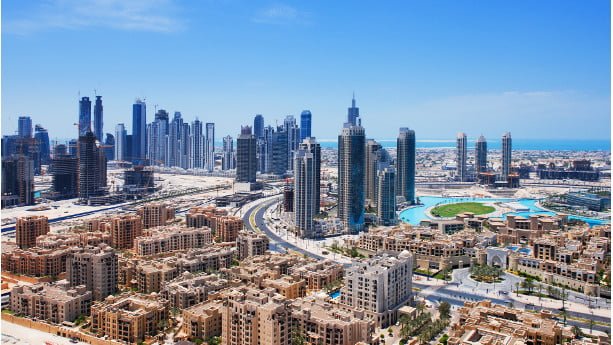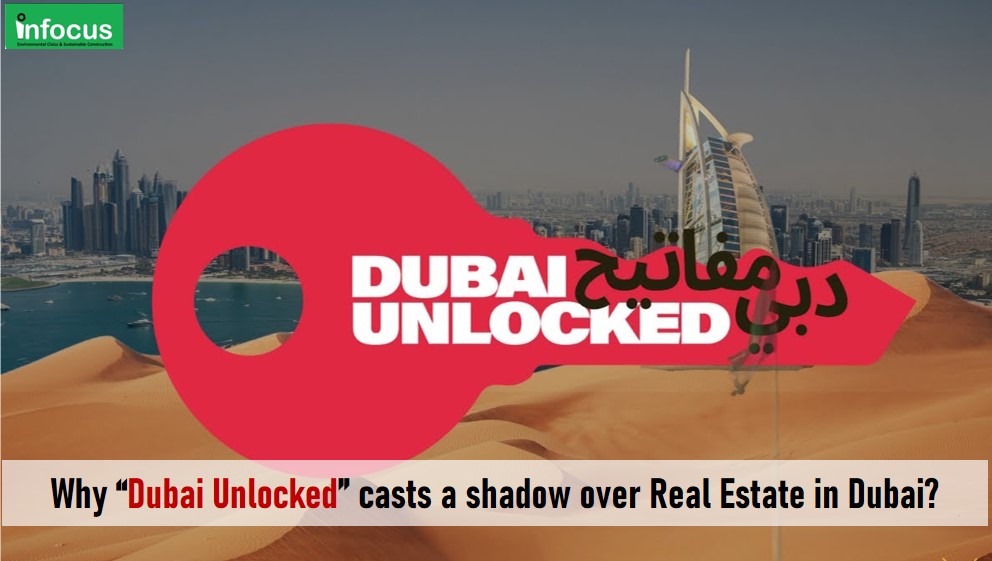Dubai’s real estate sector has long been a magnet for investors worldwide, drawn by its ambitious development projects, lucrative returns, and business-friendly environment. However, the Gulf City has also long been touted as a haven for those looking to hide their wealth — whether lawfully or unlawfully acquired — away from the tax authorities’ watchful eyes. Pakistani authorities and even major global watchdogs tried multiple times to get information on real estate properties owned by various nationals in the emirate but were turned down each time. But now, the disclosure of “Dubai Unlocked”- a trove of leaked data, reported on various global media for the first time, casts a shadow on real estate market in Dubai regarding who owns what in a place often referred to as a playground for the rich.
The Ideality of Real Estate in Dubai:
Dubai has built its economy around being a home for expatriates. In the 1990s, the emirate’s oil revenues plummeted and its leadership began looking abroad for investments. It found its path forward in real estate, constructing scores of new residential developments, the tallest building in the world, and two artificial peninsulas shaped like palm trees. Since then, real estate development has been a significant source of income for the emirate, attracting foreign capital and wealthy people from around the world.
However, Dubai’s high-rises and villas have allegedly served as a safe haven for some of the world’s most wanted criminals, due in part to the secrecy its real estate sector affords. The city’s property records were difficult to obtain and could not be easily searched.
Dubai Unlocked, More than Just a Leak:
After a six-month investigation led by the Organized Crime and Corruption Reporting Project (OCCRP) and the Norwegian outlet E24, reporters from 74 partners in 58 countries have uncovered scores of convicted criminals, fugitives, political figures accused of corruption or their associates, and sanctioned individuals who have recently owned at least one piece of real estate in Dubai.
Although, the UAE authorities have rubbished the “Dubai Unlocked” real estate report and maintain the Emirates takes its role “extremely seriously” in protecting the integrity of the global financial system. Earlier this year, the Emirates was also removed from the FATF grey list, reflecting the country’s commitment to fighting financial crime, but the revelations published in “Dubai Unlocked” aren’t just storm in the teacup this time.
Illegal Investment in Dubai Real Estate:
With the influx of foreign capital comes the risk of illegal investments and illicit activities that are said to undermine the integrity of the market. Transparency International in a report “Dubai real estate: a money launderers’ paradise” in 2018 mentions “With its luxury hotels, skyscrapers and man-made islands, Dubai projects an image to the world of an ultra-modern luxury paradise. Behind the shimmering cityscape lies one of the most secretive — and cash-friendly — money-laundering hubs in the world.”

The Financial Action Task Force (FATF), an intergovernmental body established to combat money laundering, has identified Dubai as a high-risk jurisdiction for money laundering and terrorist financing. The country’s lack of effective anti-money laundering measures and weak regulatory environment make it an attractive destination for organized criminal groups to hide illicit funds.
The investment environment in the UAE can be dangerously attractive, but in many ways it is dubbed as a minefield. Typically, people buy properties before they are even built, and their value is purely speculative. They may intend to let the properties out to tenants once they are completed, only to find that they cannot charge sufficient rent to cover their mortgage payments. Which is the reason, property experts in Dubai believe that around 15 to 20% of the emirate’s units are still left unoccupied.
Major Convicts named in Dubai Unlocked:
The Dubai Leaked data shines spotlight on Pakistan offshore real estate wealth, revealing over 23,000 properties listed belonging to Pakistani nationals worth well above $12.5bn. However, there are other nationals too, who are overlooked in local media. According to the report “Since the invasion of Ukraine, and the imposition of US and the European sanctions against Russia, we have seen Russian investment in Dubai real estate skyrocket.”
Dubai real estate has also been used by cryptocurrency dealers to shield their illegalities. So-called Crypto Queen Ruja Ignatova and her security adviser, Frank Schneider, liquidated Dubai assets despite being charged in the U.S. for their alleged roles in a $4bn fraud. The whereabouts of both are unknown.
As billions of U.S. dollars flowed in to rebuild Afghanistan following the fall of the Taliban in 2001, many contractors were accused of skimming reconstruction funds. Many of them, notably companies like Ocean Residencia and Fern Heights, own luxury properties in Dubai.
The former speaker of Afghanistan’s parliament and his son, who were sanctioned late last year for allegedly misappropriating U.S. government aid, own luxury real estate in Dubai worth millions of dollars, property records reveal.
Similarly, two major auto part manufacturers in Iran Abbas Iravani and Mohammad Alipour own many residential and commercial units in Dubai. Both are convicted by the Iranian judiciary for significantly disrupting the country’s economic system, through organized and professional smuggling of auto parts and by undermining the monetary and currency system.
The list is long, and so is the greed for wealth and power for which Dubai is an ideal playground for the rich. However, it is to see after the “Dubai Unlocked” how the international community responds to the above revelations.
By
Editorial, Infocus


